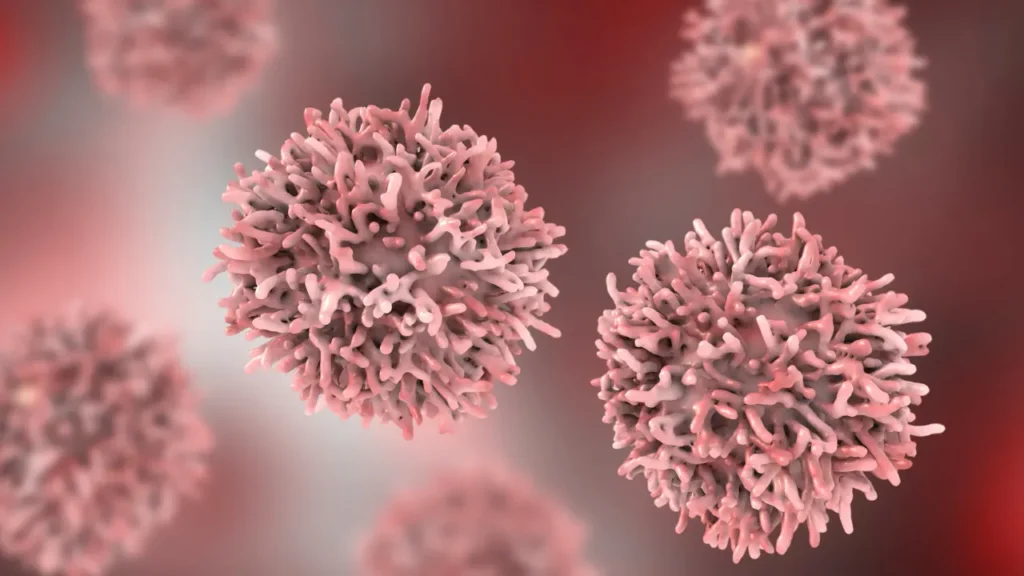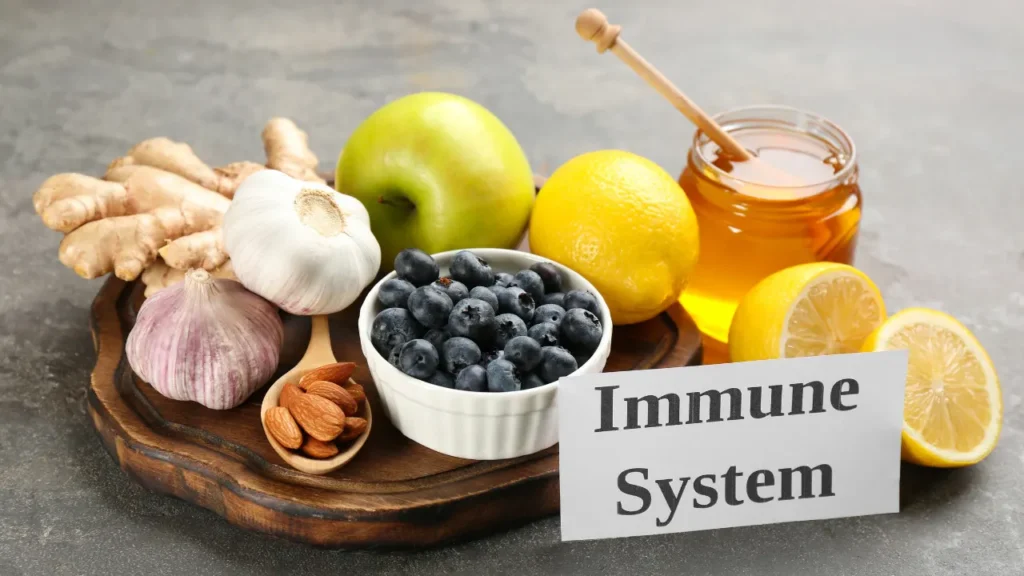Germanium, a trace element that is widely distributed in many environments, has recently gained increasing scientific interest due to its alleged health advantages. Although this element, the designated Ge on the periodic table, is not thought to be crucial for our health, it has been found to be useful in biotechnology, complementary medicine, and nutritional supplements. In this article, germanium’s nature, health advantages, recommended dose, negative effects, possible drug interactions, and its physiological properties on the body and brain are all going to be covered.
You May Also Like:
Levium Premium Liquid Fast-Acting Natural Stress Relief Supplement: In-Depth Review
Germanium: Benefits, Dosage, Side Effects, Drug Interactions, and Other Important Information is an original (NootropicsPlanet) article.
Nature of Germanium
The periodic table’s group 14 contains germanium and other elements with semiconducting properties. Germanium is a brittle, hard, glossy, gray-white metalloid in its pure state. However, organic germanium, especially Ge-132 (bis-carboxyethyl germanium sesquioxide), or inorganic germanium, such as germanium dioxide, are the two most often encountered forms of germanium for biological use. Pure elemental germanium is not well absorbed in the gastrointestinal system, hence organic germanium compounds like Ge-132 are created to enhance bio availability.
Health Benefits of Germanium
Germanium has been researched for potential health advantages despite not being an essential nutrient. Its noninflammatory, anti-oxidative, and anticancer properties are the main topics of research.
In recent studies, organic germanium compounds appear to enhance the synthesis of interferon, a protein crucial to immune system health, which has been linked to immunomodulatory effects. In the battle against viral infections and in controlling the immune system response, interferon is an essential player.
The ability of germanium compounds to control reactive oxygen species (ROS) inside the body can be the source of their anti-oxidative abilities. When ROS are out of equilibrium, oxidative stress results, which is linked to aging and a number of illnesses. The anti-oxidative properties of germanium compounds point to possible advantages in treating oxidative stress-related diseases.
Last but not least, research on the anticancer effects of germanium has been conducted, mostly in vitro and on animals. There is evidence that shows some organic germanium compounds can slow the development of cancer cells, but it’s important to emphasize that human studies are absent and that further research is needed to confirm these results.

Chemistry of Germanium
Germanium is a metallic element in group 14 of the periodic table. This group is known for its semiconducting properties, which germanium also contains. Germanium appears as a hard, glossy, grayish-white, brittle metalloid when it is pure. Despite this, germanium is frequently found in biological contexts as inorganic germanium in the form of germanium dioxide or as organic germanium compounds such as Ge-132 (bis-carboxyethyl germanium sesquioxide).
Ge-132 is a synthetic organic substance designed to improve germanium’s bio availability. Because elemental germanium absorbs very little through the digestive system, this synthesis is required. In contrast, the inorganic form of germanium dioxide is known to pose possible toxicity problems, especially when ingested in large amounts.
Physiological Properties of Germanium
Germanium’s impact on physiology is dependent on its chemical form and is connected to its noninflammatory, anti-oxidative, and anticancer properties.
The synthesis of interferon, a protein crucial for immunological responses, appears to be stimulated by organic germanium compounds, according to research on noninflammatory properties. Fighting viral infections and regulating immune responses are among the crucial roles of interferon. This suggests that germanium can boost the immune system, which may be advantageous for fighting off infections and malignancies.
Germanium’s ability to control reactive oxygen species (ROS) in the body is thought to be the source of its anti-oxidative abilities. Oxidative stress, which is brought on by an imbalance in ROS, plays a role in aging and a number of illnesses. Germanium’s ability to manage oxidative stress consequently offers potential advantages in treating oxidative stress-related illnesses.

Optimal Dosage of Germanium
The best amount of germanium to take varies a lot on how it is taken and how healthy you are. Ge-132 can be used as a dietary supplement in doses of 100 to 300 mg daily. Due to the small number of clinical studies, there isn’t a dose that is considered to be ideal for everybody. Due to instances of germanium-induced toxicity, there is also debate regarding the safety of supplementing with it. If you’re thinking about taking supplements containing germanium, you really must talk to your doctor.
Side Effects of Germanium
The form of germanium has a significant impact on its negative effects. When used in small doses, organic germanium, in particular Ge-132, is regarded as being quite safe. However, inorganic forms, like germanium dioxide, have the potential to be hazardous and have been linked in rare cases to peripheral neuropathy, muscular weakness, and kidney damage.
Potential Substance Interactions
Germanium can also interact with other chemicals. As germanium can alter liver health, it can interact with drugs that are processed by the liver. Germanium can drop blood pressure when used with antihypertensive medications, therefore if you are taking medication for hypertension, you need to use caution.

Best Responsible Use
Germanium has fascinating potential as a dietary supplement, but due to its possible toxicity, it is still shrouded in mystery. As a result, it should be used with caution and under a doctor’s supervision. Future studies are essential to understand the physiological effects of germanium fully, confirm its therapeutic potential, and establish safe dosage parameters. Despite the unknowns, research into germanium highlights the ongoing hunt for elements on the periodic table that could improve our overall health.
Germanium:
Conclusion
Germanium has mostly been studied in vitro and animal research for its anticancer potential. This makes it difficult to determine a recommended standard dose. Since germanium is thought to cause apoptosis (programmed cell death) in certain cells, evidence shows that organic germanium compounds can prevent the development of some kinds of cancer cells. However, the paucity of human trials makes more research and testing necessary to verify these results. These factors are critical to remember, despite how beneficial you believe a germanium supplement would be for you. Always talk to your doctor before starting a new supplement.

References:
- Antitumor agents. 120. Bisphenyls and biphenols of bis (2-hydroxyphenyl)methyl germanium chloride as novel potent cytotoxic and antitumor agents. Retrieved From: https://pubs.acs.org/doi/abs/10.1021/jm00080a008
- Germanium-132, a Novel Agent for the Treatment of High-Risk Acute Leukemia. Retrieved From: https://www.karger.com/Article/Abstract/218873
- Germanium has long been considered a therapeutic agent with anticancer, antitumor, antiaging, antiviral and anti-inflammatory effects.link:https://www.ncbi.nlm.nih.gov/pmc/articles/PMC7572073/
Important Note: The information contained in this article is for general informational purposes only, and should not be construed as health or medical advice, nor is it intended to diagnose, prevent, treat, or cure any disease or health condition. Before embarking on any diet, fitness regimen, or program of nutritional supplementation, it is advisable to consult your healthcare professional in order to determine its safety and probable efficacy in terms of your individual state of health.
Regarding Nutritional Supplements Or Other Non-Prescription Health Products: If any nutritional supplements or other non-prescription health products are mentioned in the foregoing article, any claims or statements made about them have not been evaluated by the U.S. Food and Drug Administration, and such nutritional supplements or other health products are not intended to diagnose, treat, cure, or prevent any disease.


